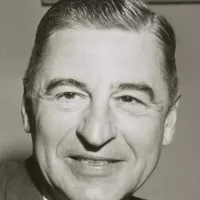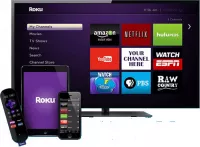CBS, or CBS Broadcasting Inc., is a major American commercial broadcast television and radio network. It's the flagship property of the CBS Entertainment Group, which itself is a division of Paramount Skydance. CBS is considered one of Paramount Skydance's three flagship subsidiaries, alongside Paramount Pictures and MTV, highlighting its importance within the larger media conglomerate.
January 27, 1927: Foundation of United Independent Broadcasters, Inc.
On January 27, 1927, Arthur Judson founded United Independent Broadcasters, Inc., a radio network, in Chicago, marking the origin of what would become CBS.
September 1928: Paley Becomes Majority Owner
In September 1928, William S. Paley increased his stake to become the majority owner of CBS with 51 percent of the business.
1949: Pillsbury Bake-Off Broadcast on CBS
In 1949, the Pillsbury Bake-Off, an annual national cooking contest, began being broadcast on CBS as a special.
1949: Composition of "Loneliness of Evening"
In 1949, the song "Loneliness of Evening" was originally composed for South Pacific but was not performed in that musical. It was later included in CBS's 1965 remake of "Cinderella".
October 20, 1951: Eye Network Trademark Symbol
On October 20, 1951, CBS adopted the "Eye" as its trademark symbol, leading to its nickname as the Eye Network.
1955: Captain Kangaroo Broadcast
In 1955, CBS began broadcasting the live-action series Captain Kangaroo on weekday mornings.
March 31, 1957: CBS Broadcasts Cinderella
On March 31, 1957, CBS broadcast a musical production of "Cinderella", with music by Richard Rodgers and lyrics by Oscar Hammerstein II, starring Julie Andrews. It was seen by over 100 million people.
1957: First Live Telecast of The Nutcracker
In 1957, CBS broadcast live the George Balanchine New York City Ballet production of Tchaikovsky's "The Nutcracker".
1958: Debut of Young People's Concerts
In 1958, CBS began airing the Young People's Concerts, conducted by Leonard Bernstein. These programs introduced classical music to children through Bernstein's commentaries.
1958: Second Live Telecast of The Nutcracker
In 1958, CBS broadcast live for the second time the George Balanchine New York City Ballet production of Tchaikovsky's "The Nutcracker".
1959: Golden's Death
In 1959, William Golden, the creator of the CBS Eye logo, died unexpectedly. Lou Dorfsman, one of his top assistants, replaced him and oversaw all print and on-air graphics for CBS for the next 30 years.
1961: Emmy Win for Young People's Concerts
In 1961, the Young People's Concerts on CBS won an Emmy Award.
1963: Miss USA Beauty Pageant Aired on CBS
In 1963, the Miss USA beauty pageant began airing on CBS.
1964: National Geographic Specials on CBS
In 1964, CBS became the original broadcast home for the primetime specials produced by the National Geographic Society.
1964: Rudolph the Red-Nosed Reindeer First Aired
In 1964, Rudolph the Red-Nosed Reindeer first aired on NBC. It would eventually become an annual holiday staple on CBS.
1965: A Charlie Brown Christmas
In 1965, CBS began broadcasting animated primetime specials based on the Peanuts comic strip, starting with A Charlie Brown Christmas.
1965: CBS Broadcasts German-American Filmed Production of The Nutcracker
In 1965, CBS broadcast a little-known German-American filmed production of Tchaikovsky's "The Nutcracker", starring Edward Villella, Patricia McBride, and Melissa Hayden.
1965: CBS Remakes Cinderella
In 1965, CBS remade "Cinderella" with Lesley Ann Warren, Stuart Damon, Ginger Rogers, and Walter Pidgeon. The remake included the new song "Loneliness of Evening".
1966: Young People's Concerts Broadcast in Color and Emmy Win
In 1966, the Young People's Concerts on CBS began broadcasting in color, and the show also won an Emmy Award that year.
1967: Bob Barker Begins Hosting Miss USA on CBS
In 1967, Bob Barker began hosting the Miss USA pageant on CBS.
1971: Spin-off of Viacom
In 1971, CBS spun off its broadcast syndication division, Viacom, into a separate company.
1972: End of Young People's Concerts
In 1972, CBS stopped airing the Young People's Concerts, which had been broadcast since 1958 and conducted by Leonard Bernstein.
1972: George W. Bush's Service in Air National Guard
In 1972, George W. Bush served in the Air National Guard, which was questioned in a 2004 CBS 60 Minutes episode.
1972: The Price Is Right Debut
In 1972, The Price Is Right began production and became the longest continuously running daytime game show on network television.
1973: A CBS Special Presentation Opening Sequence Debut
In 1973, CBS began using a seven-second animated opening sequence for its animated specials, titled "A CBS Special Presentation." The sequence featured the word "SPECIAL" zooming in and out against a black background, accompanied by a jazzy fanfare.
1973: George W. Bush's Service in Air National Guard
In 1973, George W. Bush served in the Air National Guard, which was questioned in a 2004 CBS 60 Minutes episode.
1973: National Geographic Specials Move to ABC
In 1973, the National Geographic Specials moved from CBS to ABC.
1973: The Young and the Restless Debut
In 1973, the hour-long soap opera series The Young and the Restless debuted on CBS.
1974: CBS, Inc.
In 1974, the company dropped its original full name and became known simply as CBS, Inc.
1975: National Geographic Specials Move to PBS
In 1975, the National Geographic Specials moved to PBS, under the production of Pittsburgh member station WQED.
June 1, 1977: Elvis Presley Signs Deal with CBS
On June 1, 1977, Elvis Presley signed a deal with CBS to appear in a new television special, to be filmed during his summer concerts.
October 3, 1977: CBS Airs Elvis in Concert
On October 3, 1977, CBS aired the special "Elvis in Concert", filmed during Elvis Presley's final tour, nearly two months after his death.
1977: Mikhail Baryshnikov's The Nutcracker on CBS
In 1977, CBS began broadcasting the Mikhail Baryshnikov staging of Tchaikovsky's ballet "The Nutcracker", starring Baryshnikov and Gelsey Kirkland.
1978: CBS Broadcasts The Kennedy Center Honors
In 1978, CBS became the sole broadcaster of The Kennedy Center Honors, an annual performing arts tribute.
1979: Coverage of the San Fransisco mayoral election
In 1979 the documentary episode "Gay Power, Gay Politics", which aired on CBS Reports, focused on gay sexual practices, and also covered San Francisco's mayoral election.
April 26, 1980: Airing of "Gay Power, Gay Politics"
On April 26, 1980, CBS aired "Gay Power, Gay Politics", an episode of the CBS Reports documentary series. It was accused of misrepresentation and propagating misinformation regarding the LGBTQ community in San Francisco.
1981: "Reach for the Stars" Campaign
During the 1981-82 season, CBS used the "Reach for the Stars" campaign. It featured a space theme to capitalize on CBS's improved ratings and the launch of the space shuttle Columbia.
1982: End of Weekday Captain Kangaroo
In 1982, CBS ended weekday broadcasts of Captain Kangaroo, but the show continued on Saturdays.
1982: "Great Moments" Campaign
In 1982, CBS introduced the "Great Moments" campaign. It juxtaposed scenes from classic CBS programs such as I Love Lucy with scenes from the network's current shows like Dallas and M*A*S*H.
1983: "We've Got the Touch" Campaign
From 1983 to 1986, CBS launched a campaign based on the slogan "We've Got the Touch". Richie Havens contributed vocals for the jingle in 1983-84.
1984: "We've Got the Touch" Campaign
During 1984-1985, CBS continued the campaign based on the slogan "We've Got the Touch". Richie Havens contributed vocals for the jingle.
1984: End of Saturday Captain Kangaroo
In 1984, CBS stopped broadcasting Captain Kangaroo on Saturdays, ending its run on the network.
1985: "We've Got the Touch" Campaign
During 1985-1986, CBS continued the campaign based on the slogan "We've Got the Touch". Kenny Rogers contributed vocals for the jingle.
1986: "We've Got the Touch" Campaign
From 1983 to 1986, CBS launched a campaign based on the slogan "We've Got the Touch". Kenny Rogers contributed vocals for the jingle in 1985-86.
1986: CBS Telecasts Carnegie Hall: The Grand Reopening
In 1986, CBS telecast "Carnegie Hall: The Grand Reopening" in primetime, featuring artists from Leonard Bernstein to Frank Sinatra.
1986: "Share the Spirit of CBS" Campaign
The 1986-87 season saw the introduction of the "Share the Spirit of CBS" campaign, CBS's first to use computer graphics and digital video effects completely.
1987: Bob Barker Leaves Miss USA over Fur Coat Dispute
In 1987, Bob Barker quit hosting the Miss USA pageant due to a dispute over the use of fur coats as prizes.
1987: The Bold and the Beautiful Debut
In 1987, the half-hour soap opera series The Bold and the Beautiful debuted on CBS.
1987: "CBS Spirit" Campaign
In 1987-88, CBS launched the "CBS Spirit" campaign, which utilized a procession of clips from the network's programs and a swirling blue line to represent "the spirit".
1988: "Television You Can Feel" Campaign
For the 1988-89 season, CBS unveiled a new image campaign known as "Television You Can Feel", conveying a sensual, new-age image through computer graphics and soothing music. However, CBS saw its ratings freefall during this season.
1988: Alan Thicke Hosts Miss USA on CBS
In 1988, Alan Thicke hosted the Miss USA pageant on CBS.
1988: Garfield and Friends
In 1988, CBS Saturday-morning cartoon Garfield and Friends, based on the Garfield comic strip, ran until 1995.
1989: Dick Clark Hosts Miss USA on CBS
In 1989, Dick Clark began hosting the Miss USA pageant on CBS.
1989: "Get Ready for CBS" Campaign
With the 1989-90 season, CBS introduced "Get Ready for CBS" to elevate the network out of last place. The campaign featured network stars interacting in a remote studio set and partnered with Kmart for the "CBS/Kmart Get Ready Giveaway".
1990: New Jingle Performed by The Temptations
For the 1990-91 season, the CBS campaign featured a new jingle performed by The Temptations, an altered version of their hit "Get Ready".
1990: End of "A CBS Special Presentation" Opening Sequence Run
In 1990, CBS stopped using the "A CBS Special Presentation" animated opening sequence that had been used since 1973 for its animated specials.
1992: "This is CBS" Tagline
In 1992, CBS used the simplified tagline "This is CBS" for its image campaign. A four-note sound mark was also introduced for the end-of-show network identification sequence.
1992: Updated Sound Mark Usage
Throughout the 2000s, CBS's rating resurgence was backed by the network's "It's All Here" campaign, which introduced updated versions of the 1992 sound mark.
1993: Dick Clark Ends Hosting Miss USA on CBS
In 1993, Dick Clark ended his run hosting the Miss USA pageant on CBS.
1994: Bob Goen Hosts Miss USA on CBS
In 1994, Bob Goen began hosting the Miss USA pageant on CBS.
1994: Westinghouse Acquisition
In 1994, the Westinghouse Electric Corporation acquired CBS, beginning a series of ownership and name changes for the network.
1995: CBS Refuses to Air 60 Minutes Segment
In 1995, CBS refused to air a 60 Minutes segment featuring an interview with a former president of research and development for Brown & Williamson, a major tobacco company. This decision raised questions about journalistic standards and legal pressures.
1995: "You're on CBS" Tagline
In 1995, CBS used the simplified tagline "You're on CBS" for its image campaign.
1995: National Geographic Specials Move to NBC
In 1995, the National Geographic Specials moved to NBC.
1996: "Welcome Home to a CBS Night" Campaign
During 1996-1997, CBS's promotions department launched the "Welcome Home to a CBS Night" campaign.
1996: Bob Goen Ends Hosting Miss USA on CBS
In 1996, Bob Goen ended his run hosting the Miss USA pageant on CBS.
1996: Westinghouse Merger with CBS
In 1996, after Westinghouse Electric bought CBS, Eyemark Entertainment was created from the merger of MaXaM Entertainment, Group W Productions, & CBS Enterprises.
1997: "Welcome Home" Campaign
During 1997-1999, CBS shortened its campaign to "Welcome Home".
1997: Premiere of Wheel 2000
In 1997, CBS premiered Wheel 2000, a children's version of the syndicated game show Wheel of Fortune which aired simultaneously on the Game Show Network.
1997: CBS Corporation Name
In 1997, Westinghouse Electric Corporation adopted the name of the company it had acquired to become CBS Corporation.
September 1998: CBS Kidshow Debut
In September 1998, CBS began contracting out its Saturday morning schedule, starting with the CBS Kidshow featuring programming from Nelvana.
September 1998: Launch of CBS HD
In September 1998, CBS began its conversion to high definition with the launch of its simulcast feed CBS HD.
1999: "The Address is CBS" Campaign
During 1999-2000, CBS launched the campaign "The Address is CBS", a spin-off from the previous "Welcome Home" campaign.
1999: CBS Under Viacom Control
In 1999, CBS came under the control of Viacom, which had originally been formed as a spin-off of CBS in 1971.
1999: The Insider Film Release
In 1999, the Michael Mann-directed drama film "The Insider" was released, based on the 1995 CBS controversy.
September 2000: Nick Jr. on CBS Debut
In September 2000, CBS partnered with Nickelodeon to air Nick Jr. programming under the banner Nick Jr. on CBS.
2000: Gradual Conversion to High Definition
Beginning with the 2000-01 season, CBS gradually converted much of its existing programming from standard definition to high definition.
2000: "The Address is CBS" Campaign
During 1999-2000, CBS continued with the campaign "The Address is CBS", a spin-off from the previous "Welcome Home" campaign.
2000: End of Peanuts Specials on CBS
In 2000, CBS's broadcast rights to the Peanuts specials were acquired by ABC.
2000: End of CBS Kidshow
In 2000, the CBS Kidshow block, which featured programming from Nelvana, ended its run.
2000: Miss USA Viewership Drops
In 2000, the Miss USA pageant viewership dropped to an average of 7 million.
2000: National Geographic Specials Return to PBS
In 2000, the National Geographic Specials returned to PBS.
January 2001: Launch of National Geographic Channel
In January 2001, the National Geographic Channel was launched as a joint venture between the National Geographic Society and Fox Cable Networks, partly due to the success of the specials.
June 27, 2001: The Young and the Restless Broadcast in HD
On June 27, 2001, "The Young and the Restless" became the first daytime soap opera to broadcast in HD.
2001: Miss USA Viewership Stays Low
In 2001, the Miss USA pageant viewership remained at an average of 7 million.
2002: Nick on CBS Debut
From 2002, live-action and animated Nickelodeon series aimed at older children also aired as part of the block under the name Nick on CBS.
2002: End of Pillsbury Bake-Off Broadcast on CBS
In 2002, CBS stopped broadcasting the Pillsbury Bake-Off, which had been an annual special since 1949.
2002: Miss USA Leaves CBS for NBC
In 2002, Donald Trump brokered a deal to move the Miss USA pageant from CBS to NBC.
2003: Release of "Rock Your Body"
In 2003, Justin Timberlake released the single "Rock Your Body", which was performed during the Super Bowl XXXVIII halftime show.
2003: Miss USA Airs on NBC
In 2003, the Miss USA pageant began airing on NBC as part of a five-year contract.
September 8, 2004: CBS Airs Controversial 60 Minutes Episode
On September 8, 2004, CBS aired a controversial episode of 60 Minutes Wednesday questioning then-President George W. Bush's service in the Air National Guard. The documents used were later found to be not properly authenticated.
2004: FCC Fines CBS for Super Bowl XXXVIII Incident
In 2004, the FCC imposed a record $550,000 fine against CBS for the incident during its broadcast of Super Bowl XXXVIII in which singer Janet Jackson's right breast was briefly exposed. This resulted in increased regulation of broadcast television and radio outlets.
2005: Certain Holiday Specials Continued to be Presented in 4:3 SD
As of 2005, certain holiday specials produced before that year, such as the Rankin-Bass specials, continued to be presented in 4:3 SD.
2005: End of Nick on CBS
By 2005, live-action and animated Nickelodeon series aimed at older children no longer aired as part of the block under the name Nick on CBS.
2005: Animated series airing in syndication
CBS aired one animated series that originally aired in syndication in 2005.
2005: "Everybody's Watching" Slogan
In 2005, CBS's campaign introduced the slogan "Everybody's Watching", leading to the proclamation that it was "America's Most Watched Network".
2005: Viacom Split and CBS Re-establishment
In 2005, Viacom split itself into two separate companies and re-established CBS Corporation through the spin-off of its broadcast television, radio and select cable television and non-broadcasting assets, with the CBS network at its core.
March 2006: Agreement with DIC Entertainment
In March 2006, CBS entered into a three-year agreement with DIC Entertainment to program the Saturday morning time slot.
2006: New Graphical Identity
In 2006, CBS used a new graphical identity created by Trollbäck + Company, which placed the Eye logo in a "trademark" position on show titles, days of the week, and descriptive words.
2006: "We Are CBS" Slogan
In 2006, CBS's campaign introduced the slogan "We Are CBS", with Don LaFontaine providing the voiceover for the IDs and promos.
September 2007: Dan Rather Files Lawsuit
In September 2007, former CBS news anchor Dan Rather filed a $70 million lawsuit against CBS and Viacom, contending the 60 Minutes story and his termination were mishandled.
2007: Graphical Identity Continued
In 2007, CBS continued using the graphical identity created by Trollbäck + Company, placing the Eye logo in a "trademark" position on show titles, days of the week, and descriptive words.
2007: Drew Carey Hosts The Price Is Right
In 2007, Drew Carey replaced Bob Barker as the host of The Price Is Right.
2007: KOL Withdraws Sponsorship
In mid-2007, KOL, the children's service of AOL, withdrew sponsorship from CBS's Saturday morning block, which was subsequently renamed KEWLopolis.
2008: Fine Annulled
In 2008, a Philadelphia federal court annulled the fine imposed on CBS, labeling it "arbitrary and capricious".
2008: Parts of Dan Rather Lawsuit Dismissed
In 2008, parts of the lawsuit filed by Dan Rather against CBS and Viacom were dismissed.
February 24, 2009: Renewal of Contract with Cookie Jar
On February 24, 2009, CBS announced that it would renew its contract with Cookie Jar for another three seasons through 2012.
September 14, 2009: Joint Venture Deal with Chellomedia
On September 14, 2009, CBS Studios International reached a joint venture deal with Chellomedia to launch six CBS-branded channels in the United Kingdom.
September 19, 2009: KEWLopolis Renamed Cookie Jar TV
On September 19, 2009, KEWLopolis was renamed Cookie Jar TV.
October 1, 2009: Launch of CBS Channels in the UK
On October 1, 2009, it was announced that the first four channels, CBS Reality, CBS Reality +1, CBS Drama, and CBS Action, would launch on November 16, replacing Zone Reality, Zone Reality +1, Zone Romantica, and Zone Thriller, respectively.
2009: "Only CBS" Campaign
In 2009, CBS introduced a campaign entitled "Only CBS", in which network promotions proclaim several unique qualities it has.
April 5, 2010: Rebranding of Zone Horror
On April 5, 2010, Zone Horror and Zone Horror +1 were rebranded as Horror Channel and Horror Channel +1.
October 2010: Debut of The Talk
In October 2010, The Talk, a panel talk show similar to ABC's The View, debuted on CBS.
2010: Other Networks Aired Entire Programming Schedules in High Definition
By the 2010-11 season, NBC, Fox, and The CW were already airing their entire programming schedules in high definition.
2010: Dan Rather Lawsuit Dismissed
In 2010, the entire lawsuit filed by Dan Rather against CBS and Viacom was dismissed, and his motion to appeal was denied.
October 2011: 60th Anniversary of the Eye Logo
In October 2011, CBS celebrated the 60th anniversary of the Eye logo's introduction. The network aired special IDs of logo versions from previous CBS image campaigns during its primetime lineup.
2011: ABC Aired Entire Programming Schedules in High Definition
By the 2011-12 midseason, ABC was broadcasting its entire schedule in HD.
2011: "America's Most Watched Network" Re-introduction
In 2011, CBS re-introduced the slogan "America's Most Watched Network", used alongside the "Only CBS" slogan.
2012: Rebranding of Zone Channels in Israel
In 2012, the channels Zone Reality and Zone Romantica in Israel were rebranded as CBS Reality and CBS Drama, respectively.
January 14, 2013: CNET Editor Addresses Conflict of Interest
On January 14, 2013, CNET editor-in-chief Lindsey Turrentine addressed the conflict of interest caused by the lawsuit and promised to prevent similar incidents.
January 2013: CNET Disqualifies Dish Network's Hopper with Sling
In January 2013, CBS Interactive disqualified Dish Network's "Hopper with Sling" from the CES "Best in Show" award due to ongoing litigation, leading to controversy and changes in the award process.
January 31, 2013: CEA Changes CES Award Process
On January 31, 2013, the CEA announced that CNET would no longer decide the CES Best in Show award winner due to CBS's interference.
March 2013: CBS Restricts Streaming on iOS App
In March 2013, upon the release of its app, CBS restricted streaming of the most recent episodes on its streaming app for Apple iOS devices until eight days after their initial broadcast.
July 24, 2013: Agreement with Litton Entertainment
On July 24, 2013, CBS agreed with Litton Entertainment to launch a new Saturday morning block.
September 28, 2013: Debut of CBS Dream Team
On September 28, 2013, the Litton-produced CBS Dream Team block began broadcasting, replacing Cookie Jar TV.
October 2013: CBS Expands Streaming Selections on App
In October 2013, CBS expanded the streaming selections on its app to include full episodes of all CBS series after the release of its Google Play and Windows 8 apps.
November 2013: Shutdown of CBS-Branded Channels in India
In late November 2013, the three CBS-branded channels in India, Big CBS Prime, Big CBS Spark, and Big CBS Love, were shut down.
October 16, 2014: Announcement of CBS All Access
On October 16, 2014, CBS announced the launch of CBS All Access, the first OTT offering by a USA broadcast television network.
October 28, 2014: CBS Launches CBS All Access
On October 28, 2014, CBS launched CBS All Access, an over-the-top subscription streaming service priced at $5.99 per month.
2014: CBS Completes Conversion to HD
In 2014, CBS completed its 14-year conversion to an entirely high-definition schedule, with "Big Brother" and "Let's Make a Deal" becoming the final two series to convert.
April 7, 2015: CBS All Access Available on Roku
On April 7, 2015, CBS All Access became available on Roku.
May 14, 2015: CBS All Access Available on Chromecast
On May 14, 2015, CBS All Access became available on Chromecast.
2015: End of Miss USA Contract with NBC
In 2015, NBC's contract to air the Miss USA pageant ended after 12 years.
September 1, 2016: CBS Frames Graphical Elements for 4:3 Presentation
On September 1, 2016, when ABC converted to a 16:9 widescreen presentation, CBS and The CW were the only remaining networks that framed their promotions and on-screen graphical elements for a 4:3 presentation.
2016: Controversy Surrounding Miss USA
In 2016, controversy arose surrounding the Miss USA pageant due to Donald Trump's remarks about Mexican immigrants.
June 2017: Network Ten Enters Voluntary Administration
In June 2017, Australian free-to-air broadcaster Network Ten entered voluntary administration.
November 2017: CBS Corporation Acquires Network Ten
In November 2017, CBS Corporation completed the acquisition of Australian broadcaster Network 10, becoming its owner.
2017: Sale of CBS Radio
In 2017, CBS sold its radio division, CBS Radio, to Entercom (now known as Audacy, Inc.).
July 2018: Allegations Against Les Moonves Surface
In July 2018, an article in The New Yorker claimed that multiple CBS employees described harassment and gender discrimination, with six women accusing Les Moonves of harassment and intimidation.
September 6, 2018: CBS Board Negotiates Les Moonves's Departure
On September 6, 2018, it was reported that CBS board members were negotiating Les Moonves's departure from the company following allegations of harassment.
September 9, 2018: Les Moonves Resigns as CEO of CBS
On September 9, 2018, Les Moonves resigned as chief executive of CBS after additional women raised accusations against him.
September 24, 2018: CBS Converted On-Screen Graphical Elements to Widescreen Presentation
On September 24, 2018, CBS converted its on-screen graphical elements to a 16:9 widescreen presentation for all non-news and sports programs.
December 2018: 10 All Access Launched in Australia
In December 2018, CBS launched a version of its streaming service in Australia under the name 10 All Access, affiliated with Network 10.
2018: Channels Carried by Providers in Israel
As of 2018, Israeli television providers Yes and Hot both only carry CBS Reality.
2018: End of Sky News Agreement
In 2018, CBS's agreement with Sky News would have ended regardless due to that entity's purchase by NBCUniversal.
December 4, 2019: Merger to ViacomCBS
On December 4, 2019, CBS Corporation and Viacom agreed to re-merge, forming ViacomCBS (later Paramount Global and now known as Paramount Skydance Corporation).
2019: Programming Available in U.S. Virgin Islands
Since 2019, CBS programming has been available in the U.S. Virgin Islands on WCVI-TV in Christiansted.
September 2020: Announcement of Rebranding to Paramount+
In September 2020, it was announced that CBS All Access would be rebranded as Paramount+ in early 2021, featuring content from the wider ViacomCBS library.
October 2020: Unified Branding Announcement
In October 2020, CBS announced that it would begin to employ a more unified branding between the network and its divisions, including a "deconstructed eye" motif and a five-note sound trademark.
2020: New Logos and Imaging Introduction
In 2020, CBS News introduced new logos and imaging incorporating the deconstructed eye motif and sonic branding, initially using it for coverage of the 2020 presidential election.
March 4, 2021: Rebrand to Paramount+
On March 4, 2021, CBS All Access was officially rebranded as Paramount+.
2021: CBS Sports Rebrand
In 2021, CBS Sports launched its rebrand ahead of Super Bowl LV, incorporating the deconstructed eye motif and sonic branding.
2021: Corporate Font Change
In 2021, CBS stopped using its specially-commissioned variant of Didot as its corporate font.
2021: Entercom Rebrands as Audacy, Inc.
In 2021, Entercom, which acquired CBS Radio in 2017, rebranded itself as Audacy, Inc.
December 20, 2024: The Talk Ended its Run
The Talk officially ended its run on December 20, 2024. The show featured Sheryl Underwood, Amanda Kloots, Jerry O'Connell, Akbar Gbajabiamila, and Natalie Morales.
September 2025: End of After Midnight Reruns
In September 2025, the reruns of the comedic game show After Midnight will end, with Comics Unleashed (reruns) filling the time slot.
2025: CBS Programming Hours
As of 2025, CBS provides 87+1⁄2 hours of regularly scheduled network programming each week.
2025: Accusations of Capitulation to Trump Administration
In 2025, CBS faced accusations of capitulating to the second Donald Trump administration, allegedly to gain approval for the Skydance–Paramount merger.
2025: Beyond the Gates Debut
In 2025, the hour-long soap opera series Beyond the Gates debuted on CBS.
January 14, 2026: CBS Reports on ICE Agent's Injuries
On January 14, 2026, CBS reported that Jonathan Ross, the ICE agent who shot Renee Nicole Good in Minneapolis, suffered internal bleeding. This report raised internal concerns at CBS News.
May 2026: The Late Show with Stephen Colbert
As of May 2026, CBS airs the talk show The Late Show with Stephen Colbert.
May 2026: Cancellation of The Late Show with Stephen Colbert
In May 2026, Stephen Colbert's show, The Late Show with Stephen Colbert, would be canceled at the conclusion of his current contract, retiring the entire Late Show franchise.
Mentioned in this timeline

Donald John Trump is an American politician media personality and...
Home Box Office HBO is an American pay television service...

Theodor Seuss Geisel better known as Dr Seuss was a...

George W Bush the rd U S President - is...

Roku Inc is an American company that owns the Roku...

Google LLC is a multinational technology corporation specializing in a...
Trending

21 minutes ago Kristi Noem faces affair allegations as questions arise about Corey Lewandowski relationship.
22 minutes ago Broadcom Earnings Anticipated Amid Tech Stock Breakout Predictions and Growth Stock Hopes.

1 hour ago Aaron Rodgers' Potential NFL Free Agency Destinations: Steelers Update and Team Fits.

1 hour ago Reid Hoffman's connection to Jeffrey Epstein and Silicon Valley scrutinized in news reports.
2 hours ago White House briefing addresses Iran war concerns, potential US strikes, and war powers.

3 hours ago Tyler Myers traded to Dallas Stars from Vancouver Canucks for draft picks.
Popular

Ken Paxton is an American politician and lawyer serving as...

Hillary Diane Rodham Clinton is a prominent American politician lawyer...

Jesse Jackson is an American civil rights activist politician and...

Jim Carrey is a Canadian-American actor and comedian celebrated for...

Bill Clinton served as the nd U S President from...

XXXTentacion born Jahseh Dwayne Ricardo Onfroy was a controversial yet...